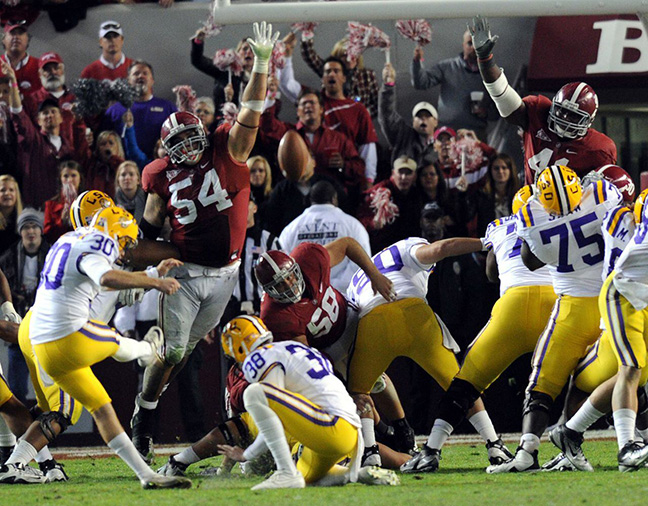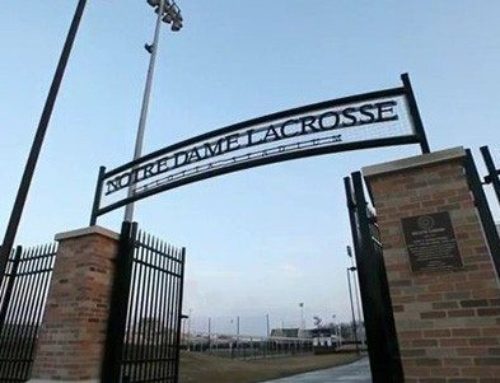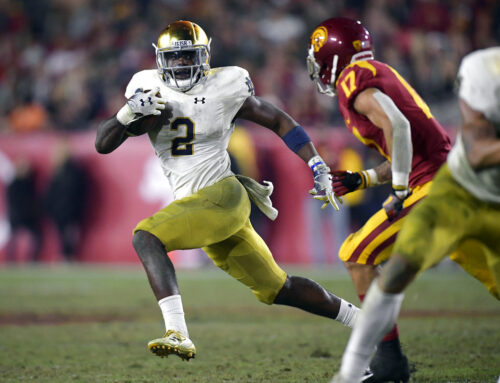You knew we had to go over this one, right?
There have been several other games since the 2000 Miami/FSU game we covered in our last entry way back in 2023 with an argument to be included in this series. Nebraska/Colorado 2001 and the 2003 Big 12 championship game are two obvious candidates, because the loser inexplicably (to some) found themselves in the national championship game anyway. However, in both those cases, the winner of the game had multiple regular-season losses (Kansas State had 3 in the latter) while the loser only had 1, so you could argue the season was treated as a whole and the single outcome was not ‘undone.’
LSU/Bama, though, was different – the clear catalyst to just about everything that has happened in the big picture of college football since. Among other things, you could almost trace the death of the Pac-12 Conference to Nov. 4, 2011, the night of the latest (and last, as it turned out) regular-season Game of the Century.
The Preamble
It became clear very quickly in 2011 that LSU/Alabama would be a big game. The Tide, coming off a three-loss season (the horror!) in 2010, nevertheless opened the season ranked #2, and LSU was #4. However, the Tigers leapt past Bama to the #2 spot after pounding Oregon in the season opener. The teams maintained the #2 and #3 positions in some order until late September and early October, when in consecutive weeks the Tigers and Tide, riding wins over West Virginia and Florida respectively, leapfrogged preseason #1 Oklahoma to take the top two spots.
LSU and Bama held those top two spots throughout October, and in an era where it still big-time mattered if your game was on in prime time, CBS made a negotiation with then-fellow SEC rightsholder ESPN. The CBS contract allowed it to choose one prime-time SEC game per year, and it had for some reason picked the Bama game against Florida and hotshot offensive coordinator Charlie Weis. Through some concessions, CBS secured a second prime-time spot for LSU/Bama, only ramping up the hype for this showdown.
The Game
(Note – you can find the full game on YouTube too, but the guy who posted it disabled playback on other sites, so here are the highlights.)
As you may remember, the game ended up being a defensive slugfest, with zero touchdowns scored and 543 total offensive yards between the teams. A ridiculous Helmet Catch-esque interception by Eric Reid at his own 1-yard line in the fourth quarter was a key play in the game, as was an insane punt of 73 yards by Brad Wing after LSU went 3-and-out on the ensuing drive.
In overtime, Alabama had the ball first, and the possession was a disaster, with two AJ McCarron incompletions and a sack sandwiched around a 12-men penalty sending the Tide backwards 10 yards. They missed a field goal, giving LSU the relatively stress-free OT possession to kick the field goal for the win.
What happened next
As was the case with Ohio State/Michigan five years prior, rematch talk quickly began after this game was played. Alabama dropped only to #4 in the AP poll. However, general opinion was that if there was another unbeaten team to face LSU, it wouldn’t happen. And at the time, #2 Oklahoma State, #3 Stanford and even #5 Boise State (remember when teams like Boise State could legitimately be in this conversation?) were still unbeaten.
However, college football quickly happened. Boise State lost the next week to TCU and Stanford went down to Oregon the same weekend, bouncing them both from the conversation. Then, the following Friday, Oklahoma State lost to Iowa State. Within 2 weeks, Alabama was back at #2 and the specter of a rematch was firmly in play.
Arkansas, which had climbed to #3 by then (the top 3 teams from the same division??), could really have tossed a monkey wrench into things by beating LSU Thanksgiving weekend, but the Tigers continued rolling on.
The final week of the regular season featured a long-shot Georgia team trying to stop the LSU freight train in the SEC title game. That, of course, didn’t happen; LSU rolled 42-10. All eyes turned then to the Bedlam game, which served as a de facto Big 12 title game (the league was in its first of what became 6 seasons without one due to its 10-team configuration.)
The Cowboys romped, 44-10, giving them a 3rd win over a BCS-ranked team (OU, Texas and Kansas State) to Bama’s two (Arkansas and – barely – Auburn). Okie State’s Sagarin strength of schedule was ranked 3rd to Alabama’s 15th. Okie State had a conference championship to its name and Alabama did not. Most importantly, at least according to the 40 or so years of bowl games deciding the national title, Oklahoma State had not played LSU yet and Alabama had, losing at home.
The controversy and the Playoff
However, most CFB fans were resigned to (or excited for) the rematch by then. The coaches’ poll and Harris poll, which were used in the BCS rankings, both had Okie State ranked #5, behind Virginia Tech and Stanford, going into the final week of the season. The Hokies lost to Clemson in the ACC title game and Stanford was idle, so OSU moved up in both, but #2 proved a bridge too far, and indeed the rematch ended up happening. In the closest race in the history of the BCS, Alabama was placed at #2 ahead of the Cowboys. The difference was the human polls; the computers had the Cowboys #2.
We later found out coaches’ poll chicanery played a role, as SEC coaches, even Les Miles, fell in line to vote Bama #2 ahead of the Cowboys (the Big 12 coaches did the same the other way) and a couple – Nick Saban included – took it a step further and dropped Okie State to #4, below Stanford, as well. (Stanford coach David Shaw did this too, though I guess that’s not surprising. Troy Calhoun of Air Force, for whatever reason, dipped the Cowboys even lower, ranking them #5, behind the Arkansas team that lost to Bama and LSU.)
The outcry outside of the South was more or less immediate. Rematches had happened, as we covered in the article about 1996; ignoring regular-season outcomes had happened, as we covered in the article about 2000. But both times, there had been no reasonable way out. Here was a situation where there was a potential rematch and a reasonable alternative to it, and still the system had produced a rematch. It was hard not to think that recent history played a role in the decision; at the time, SEC schools Florida, LSU, Auburn and Alabama had combined to win the previous five BCS titles.
It only got worse when the rematch proved to be one of the dullest games in the history of the sport. LSU had been a team led more by an overwhelming defense than a powerful offense in 2011, but Bama’s defense was statistically even better, and the Tigers only once so much as crossed midfield in the game. Despite that ridiculous level of dominance, Bama didn’t score a touchdown until five minutes left in the game, with the issue very much decided.
(Sidebar: I’ve always felt like LSU got screwed in this as much or more than Oklahoma State did. You can’t overstate how great that 2011 LSU regular season was. The Tigers played a brutal schedule, dominating Pac-12 champ Oregon at a neutral site and clobbering Big East champion West Virginia on the road as well as navigating the SEC West at its arguable peak. Yet other than against the Tide, they were never threatened – @ Mississippi State was their only other win by less than TWENTY-FOUR points. They shouldn’t have had to beat a team they’d already beaten on the road.)
Prior to 2011, the SEC (perhaps ironically) and the ACC had been the pro-playoff conferences. The Big 12, Pac-12, B1G and soon-to-be-destroyed Big East had been cool with the BCS, despite public sentiment largely being against it. After the rematch, though, opinions swung, and by the summer, a 4-team playoff had been instituted, to begin once the BCS/ESPN contracts ran out after the 2013 season.
When the Big East fell apart, that left five power conferences and a four-team playoff. The fact that the Pac-12 continuously didn’t make said playoff – they played in only one (2016) between the first one in 2014 and this last one – likely helped lead to flagging TV ratings and the ultimate destruction of that league at the hands of FOX, the B1G and (to a far lesser extent) the Big 12, the league the Pac-12 had almost itself destroyed back in 2010.





If memory serves nd was playing at wake forest at same time as this game. Man, that felt like two different sports that night.
Was in new orleans the day of sec championship, was an awesome scene. I hate that BK had to go and ruin LSU for us.